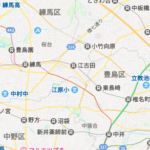Outside Director Lesson #2: My First Experience as an Outside Director

Why do I think director training is so important to Japan’s future? Because I have seen so much of what goes wrong behind the scenes, and the losses and pain that are caused, when boards do not function well here. I have a lot of “scar tissue”, as we say in English. What is really interesting, is how many commonalities there are in the causes for inadequate governance. The size of the company, and its industry, really do not seem to matter. It is the reverse of Tolstoy’s quote, as if “all Japanese boards that succeed do so in a different way, but all boards that fail, do so in the same way” If so, one would think this should make it easier to avoid governance failures.
My first experience as an outside director in Japan began in the year 2000, when the M&A advisory boutique that I led at that time, JTP Corporation, advised the US firm of MapInfo to conclude a strategic alliance and invest in a 25% capital raise by Alps Mapping in Nagoya. Alps (as it was known in Japanese) was an unlisted firm that was the third largest map publisher in Japan, and had excellent map data. The company was planning to go public at some time in the future. Because MapInfo had no staff in Japan at the time, I was nominated by MapInfo to serve on the board of Alps going forward, to protect not only its interests but also those of other shareholders, because MapInfo had no staff in Japan at the time.
At the time, the world was shifting to the internet and digital data. It was clear that physical paper maps would be a shrinking market. In fact, that was the reason for the strategic alliance with MapInfo. Alps’s high-quality map data could be used with MapInfo’s software that was sold to corporations for marketing and other analysis. But it was equally obvious that Alps needed an alliance with (or sale of the company to) a firm that had a big presence on the emerging internet, to provide its maps and other information to consumers. This needed to be done as soon as possible, since there were a limited number of logical tie-up counterparties.
Over the next six years, as an outside director I tried to convince the board how urgently we needed this sort of alliance, and why (at any rate) we needed to raise capital to increase our equity “cushion” because the risk profits suddenly slumping were huge. Several years later, for the time being, MapInfo injected more capital, raising its stake to 50%. I introduced many possibly alliance and/or capital provider counterparties to Alps, but each time I was told by the board, “we don’t mind selling equity to VC or PE funds, because we can retain our independence, but we do not want to sell to another strategic investor or acquirer. ” I told them as an M&A expert, “it is the opposite. If you do a deal with a strategic acquirer, you know who will be your parent long-term, and what the synergies are, so you can select based on that. But if you sell to a fund, make no mistake, they will sell your firm “down river” to the highest-paying buyer they can find, as soon as they can find them. By selling to private equity or VC money, you will lose control over selecting your future parent company.”
I then hinted to Yahoo (Yahoo.co.jp) that Alps might want to conclude another strategic alliance in addition to MapInfo. Yahoo replied that in that case, they would want to buy the company. But when I told this to the board and suggested the CEO at least meet with Yahoo, the board refused to even agree to discuss the possibilities with Yahoo. Because most of the directors were engineers or persons who had made their careers in the map publishing/sales business, it was hard for them to understand financial statements and realize how risky our financial position had become, as we had borrowed 200-300 million yen each from six or so banks, none of which had enough at stake to serve as a “main bank”. All directors and employees were still receiving their salaries, and on paper, it seemed that we were making some profit. What was there to worry about?
What do you think happened next?
Nicholas Benes
(writing in his personal capacity and not representing any organization).
If you thought this post was helpful, here are many other posts in this series, which will continue! Please come back for more.
Outside Director Lessons #1: Genesis of Director Training Nonprofit BDTI
Outside Director Lessons #3: How Suddenly Companies Can Collapse!
Outside Director Lessons #4: What is Worse Than the Company Going Under?
Outside Director Lessons #5: Being a Whistleblower Hotline
Outside Director Lessons #6: Insist on Total Independence!
Outside Director Lessons #7: If No D&O…Get It Yourself
Outside Director Lessons #8: The Role of the Board
Outside Director Lessons #9: Appointing the CEO
